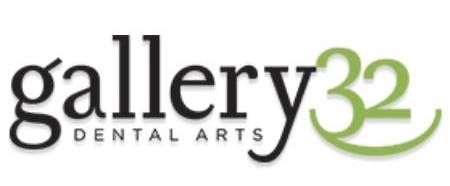
BLOG

TMJ Disorder: Symptoms, Causes, and Effective Treatment Options
Temporomandibular Joint Disorder (TMJ) is a condition that affects the jaw joint and surrounding muscles, leading to discomfort and pain. Many individuals suffer from TMJ, experiencing difficulty in chewing, speaking, and even sleeping due to persistent jaw pain. Fortunately, with the right treatment and professional care from a qualified dentist in Atlanta, GA, patients can find relief and restore normal jaw function.
What is TMJ?
The temporomandibular joint (TMJ) connects the jawbone to the skull and plays a crucial role in mouth movements such as chewing, speaking, and yawning. When this joint becomes inflamed or misaligned, it results in TMJ disorder, which can cause a range of uncomfortable symptoms.
Common Causes of TMJ Disorder
Several factors can contribute to the development of TMJ disorder, including:
- Jaw Injury: Trauma or an accident affecting the jaw can lead to TMJ problems.
- Teeth Grinding (Bruxism): Persistent teeth grinding or clenching puts excessive stress on the jaw joint.
- Arthritis: Osteoarthritis or rheumatoid arthritis can contribute to TMJ issues.
- Malocclusion (Misaligned Bite): A poor bite alignment can strain the jaw joint.
- Stress: Increased stress levels can lead to jaw clenching and muscle tension, worsening TMJ symptoms.
Symptoms of TMJ Disorder
Individuals suffering from TMJ in Atlanta, GA, may experience the following symptoms:
- Jaw pain or tenderness
- Clicking or popping sounds in the jaw
- Difficulty opening or closing the mouth
- Frequent headaches or migraines
- Ear pain or ringing (tinnitus)
- Facial swelling or discomfort
- Pain when chewing or talking
Once you start experiencing these symptoms, contact us immediately for the best TMJ treatment and care.
Diagnosis and When to See a Dentist
If you experience persistent jaw pain or discomfort, visiting a dentist is essential for a proper diagnosis. The dentist will assess your symptoms through:
- Physical Examination: Checking jaw movement and pain levels
- X-rays or Imaging Scans: Identifying any joint abnormalities
- Bite Analysis: Evaluating how teeth alignment impacts the jaw joint
Treatment Options for TMJ
TMJ disorder can often be managed with a combination of at-home care, lifestyle modifications, and professional treatment.
At-Home Remedies
- Applying Ice or Heat: Ice packs reduce inflammation, while heat therapy relaxes muscles.
- Jaw Exercises: Gentle stretching exercises can improve jaw mobility.
- Stress Management: Reducing stress through relaxation techniques can minimize jaw clenching.
- Soft Diet: Eating soft foods prevents excessive strain on the jaw joint.
Professional Treatments
Seeking treatment from a dentist can help alleviate severe TMJ symptoms through various approaches:
- Oral Appliances (Mouthguards): Custom-fitted splints or mouthguards prevent teeth grinding and relieve pressure on the jaw.
- Medications: Pain relievers, muscle relaxants, or anti-inflammatory medications can reduce discomfort.
- Physical Therapy: Jaw exercises and massage therapy can help strengthen the muscles around the joint.
- Bite Correction (Orthodontics): Adjusting the bite alignment can ease jaw strain.
Advanced Treatment Options
For severe cases of TMJ in Atlanta, GA, more advanced treatments may be necessary, including:
- Botox Injections: Temporarily relaxing the jaw muscles to reduce clenching.
- Corticosteroid Injections: Reducing inflammation in the joint.
- Surgery: In extreme cases, surgical intervention such as arthroscopy or joint replacement may be required.
Preventing TMJ Disorder
While not all TMJ cases can be prevented, individuals can take proactive steps to reduce their risk:
- Avoid Excessive Chewing: Limit chewing gum or hard foods that strain the jaw.
- Maintain Good Posture: Poor posture can contribute to jaw tension.
- Use Stress-Relief Techniques: Practices like yoga and meditation help prevent jaw clenching.
- Regular Dental Checkups: Seeing a dentist regularly ensures early detection and management of TMJ issues.
Final Thoughts
TMJ disorder can significantly impact daily life, but with the right diagnosis and treatment plan, relief is possible. If you experience persistent jaw pain, clicking sounds, or difficulty moving your jaw, seeking care for TMJ from an experienced dentist in Atlanta, GA, can help restore comfort and functionality. Don't let TMJ pain affect your quality of life—consult a dental professional today to explore treatment options and achieve lasting relief.
Schedule an appointment today at Gallery 32 Dental Arts, 3580 Piedmont Rd NE #104, Atlanta, GA 30305. For bookings and consultations, call (404) 255-6929. Please visit our official website to learn more about our various services.
Office Hours
MON - THU7:30 am - 4:30 pm
FRIBy appointments only
SAT - SUNClosed





comments